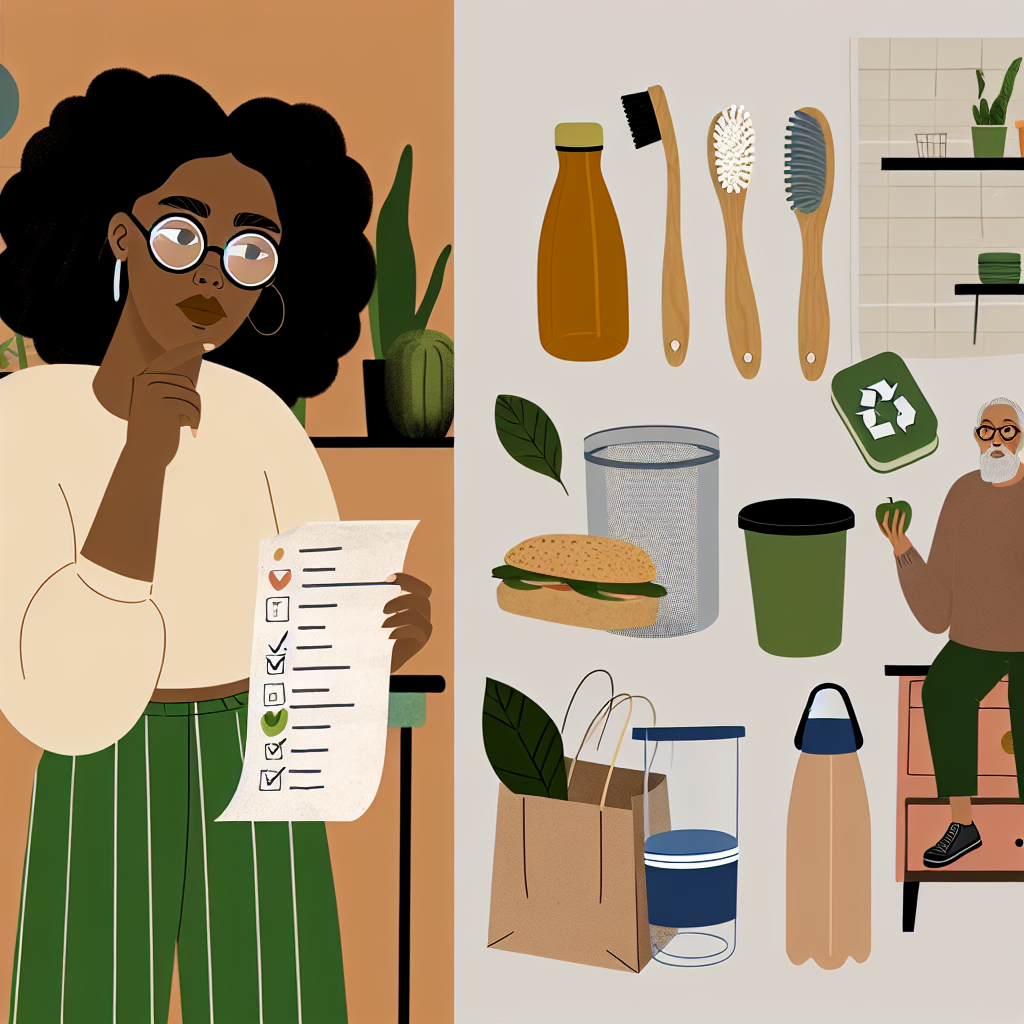7 Budget-Friendly Tips to Live a Zero-Waste Lifestyle Without Spending a Lot
Introduction
Imagine a world where unicorns dance on rainbows made of recycled plastic. That’s what some people think zero-waste living is like! But a zero-waste lifestyle doesn’t have to cost a lot of money. You don’t need to pay for a kitchen full of mason jars or fancy bamboo toothbrushes. At Frugal Zeitgeist, we want to show you how to be green without spending too much. Let’s explore seven budget-friendly ideas to help you live a zero-waste life without needing a trust fund.
Understanding Zero-Waste
What does living a zero-waste lifestyle really mean? It’s about reducing what you throw away by thinking about how you use, recycle, and reuse things. The clever folks in this movement aim to cut waste at its source. They make sure products can either go back into nature or be used again. It might sound hard, but the perks are awesome: cleaner environments, saving money, and feeling good about helping the planet.
Guess what? Zero-waste living can save money in the end! You don’t need to buy expensive eco-gadgets. By making life simpler and choosing quality over quantity, you can be surprised at how much you save.
Tip 1: Start with What You Have
You don’t need a shopping spree—your home has hidden treasures! Before spending a lot on new eco-friendly items, see what you already own.
-
Get creative: Turn old curtains into reusable shopping bags. Use empty jam jars for cool kitchen storage.
-
Use what you have: Don’t buy more until you finish things like half-used skincare products.
-
DIY spirit: Make reusable items like cloth napkins from worn-out clothes. Every little bit counts!
Tip 2: Buy in Bulk
Want to cut down on packaging waste and save on groceries? Buy in bulk!
-
Look for local bulk stores: They let you fill up containers with just what you need.
-
Check your store’s bulk section: Many supermarkets offer bulk options now.
-
Store wisely: Use glass jars or old containers to keep your bulk items fresh. Soon you’ll have a nice zero-waste pantry!
Tip 3: Simplify Your Cleaning Routine
Why need so many cleaners when you can do a lot with just a few things?
-
Use vinegar, baking soda, and lemon: These are great for cleaning windows, mirrors, and laundry!
-
Castile soap: A multipurpose star! It cleans floors, dishes, and can even wash your hair.
-
Fewer products, more saves: Basic ingredients can replace lots of pricey cleaners. Save money and space!
Tip 4: Use Reusable Items
Spending a bit on reusables can help a lot with zero-waste living.
-
Get reusable water bottles, coffee mugs, and lunch boxes.
-
Use insulated bags and beeswax wraps to keep food fresh.
-
Do the math: Compare the cost of disposables versus reusables over a year—you’ll be impressed at the savings!
Tip 5: Shop Secondhand
Why buy new stuff when you can find treasures while thrifting?
-
Clothes and accessories: Thrift stores have everything from simple tees to fancy dresses.
-
Home goods: Find furniture, appliances, and decor for less.
-
A good impact: Buying pre-loved items means less need for new things, helping the planet. Plus, you might find something special!
Tip 6: Plan Your Meals
Avoid wasting food with this easy tip!
-
Reduce waste: Use what you have and turn leftovers into tasty meals.
-
Plan ahead: Know what meals you want for the week before shopping.
-
Waste less: Simple recipes and smart grocery lists help you use everything and avoid buying too much.
Tip 7: Easy Composting
Turning food scraps into compost is simpler than you think!
-
DIY compost bins: Use balcony boxes or small kitchen bins.
-
Try worm composting: It works great in small spaces.
-
Big benefits: See your garden grow and save on fertilizers. Plants love your homemade compost!
Conclusion
There you go—seven easy, budget-friendly tips to help you start living a zero-waste lifestyle without spending much. Take it slow, stay creative, and add more practices gradually. It’s a journey of learning and growth.
These money-saving strategies also help the Earth, making saving the planet feel fun and rewarding!
Additional Resources
Want to learn more? Check out:
- Books like “Zero Waste Home” by Bea Johnson.
- Documentaries such as “A Plastic Ocean.”
- Websites like the Zero Waste International Alliance.
- Local workshops or groups focused on sustainability. Look for them on Meetup or Facebook groups.
- Articles that show great zero-waste lifestyles.
Remember, the Earth (and your wallet) will be grateful. Enjoy your zero-waste journey, fellow frugal enthusiasts!
